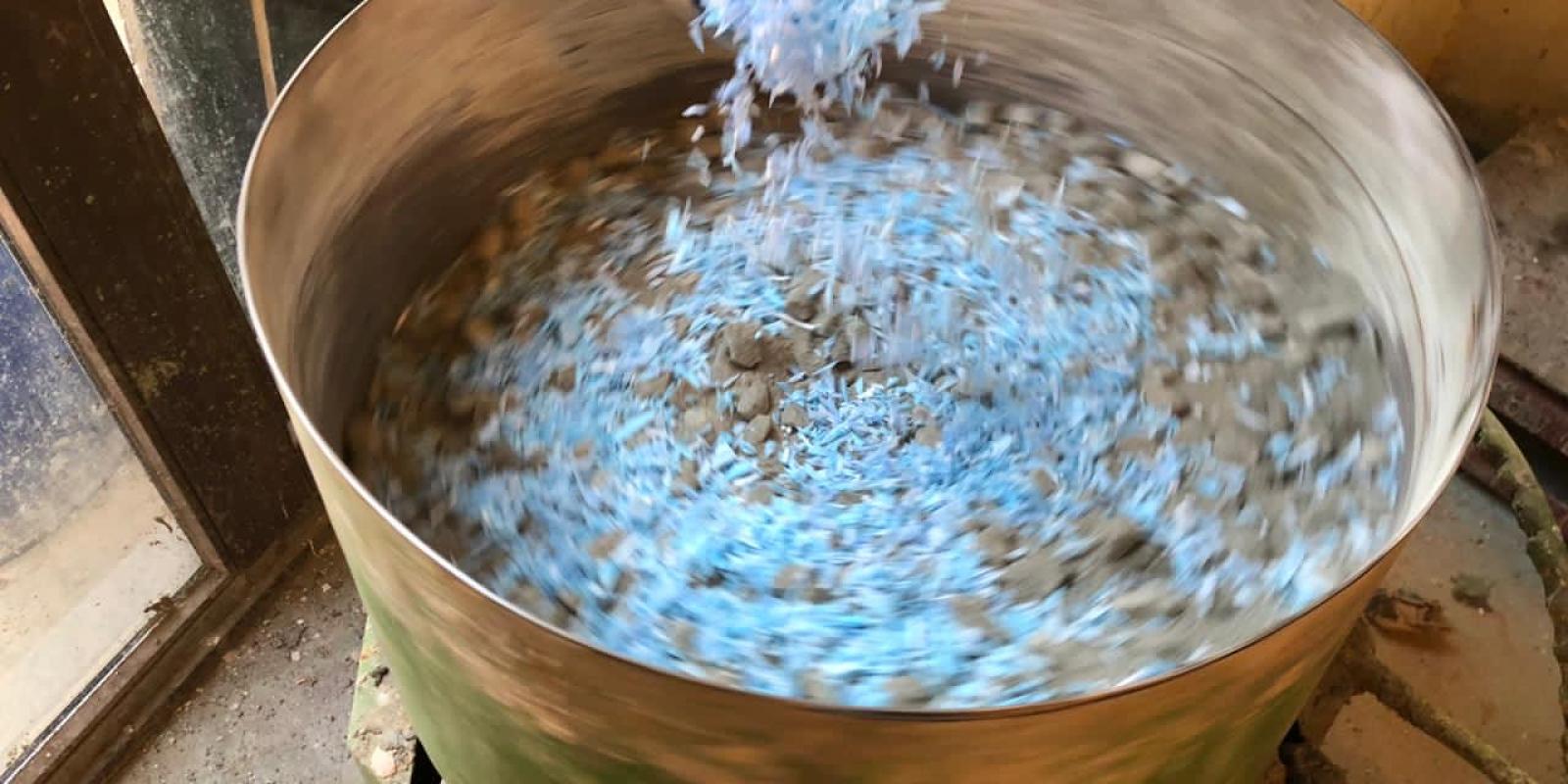
Construction Team Makes Use of Discarded Masks, Gloves in Concrete
With the spread of the COVID-19 pandemic, millions of used and contaminated face masks and gloves were being disposed improperly, leading to a possible risk of spreading the virus.
"Additionally, some individuals, sadly, were picking up these objects and using them again or selling them at a cheaper price, thus endangering the lives of others," said Mohamed Nagib Abou-Zeid, professor of construction engineering.
Abou-Zeid was determined to find a way to not just safely dispose these Personal Protective Equipment IPPE) but to do so sustainably. He started a study with his students to investigate the possibility of disposing this biological waste into concrete and then evaluate the properties of the produced concrete.

"This objective was realized through investigating the different types of viruses and bacteria and the common means of protection," Abou-Zeid said.
Abou-Zeid's team needed to develop a hybrid model for the practical and safe collection of this biological waste, simulate the virus, find a proper shredding and sanitation process, and determine how much of the waste to put into the concrete.

After assessing the amount of PPE to be disposed into a concrete mixture at a time and coming up with a model for the safe handling of the masks, Abou-Zeid's team found that safe disposal can indeed take place through concrete while both maintaining — and in some cases improving — the quality of the concrete produced.
"Ultimately, concrete can potentially act as a barrier for different contaminated biological wastes, and recommendations are provided for applicators to easily and safely dispose of such waste in concrete," said Hassan El Kassas, the project's lead teaching assistant, and MenatAllah El Kadi, a student on the team.

According to EL Kassas and El Kadi, Egypt produces around 9 million face masks a day, leading to harmful effects on the environment through reuse and contamination, throwing used masks in water and burning them.
So why concrete?
"Concrete is considered one of the main materials used in the construction industry," they said. "Thus, adding biological wastes such as gloves and masks could be mutually beneficial."
The makeup of masks, they said, can possibly reduce shrinkage, control cracks and enhance chemical resistance in concrete. As for gloves, they can reduce the adhesion strength.

"The disposal of biological waste in concrete can potentially be considered common good for both the environment and the construction industry,"El Kassas and El Kadi reaffirmed.
Moving forward, the team aims to investigate the possibility of removing viruses and other bacteria from masks and gloves as well as developing proper guidelines on how to collect and handle such hazardous waste.
